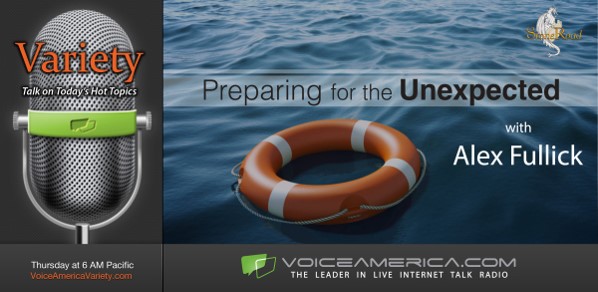Experience Extraordinary: Nurturing Exceptional Student Journeys
When speaking to Dr. Lee Ann Nutt, President of Lone Star College Tomball, on my “Empowering...
Read Moreby Stephanie Duguid | Jan 4, 2024 | Empowerment, VoiceAmerica | 0 |
When speaking to Dr. Lee Ann Nutt, President of Lone Star College Tomball, on my “Empowering...
Read Moreby VoiceAmerica | Dec 12, 2021 | Business | 0 |
Join me March 24, 2022, 1pm EST (Business Channel)! We do something a little different for this...
Read Moreby VoiceAmerica | May 19, 2021 | Business | 0 |
This week’s article is provided by Erica Dhawan as part of the World Business and Executive Coach...
Read Moreby VoiceAmerica | Mar 4, 2021 | Variety | 0 |
Join me November 4, 2021 at 9am EST! I talk to industry expert Lynn Hobballah about two key...
Read Moreby VoiceAmerica | Oct 29, 2019 | Business | 0 |
To start or to continue receiving the weekly blogs via email, please sign-up using this link:...
Read Moreby VoiceAmerica | Sep 2, 2019 | Empowerment | 0 |
Listening and its Effect on Learning by Andrew Gideon, M.S. If you’re reading this, you’ve...
Read Moreby VoiceAmerica | Feb 15, 2018 | Empowerment | 0 |
My passion is to help people better their lives by releasing their fears and blossoming into...
Read Moreby VoiceAmerica | Sep 26, 2017 | Kids | 0 |
Teens talk and the world listens every Tuesday NOON PT on the Voice America Kids Network. Produced...
Read Moreby VoiceAmerica | Sep 8, 2017 | 7th Wave, Empowerment | 0 |
Listening Your Way to the Moment An excerpt from Working on Yourself Doesn’t Work by Ariel &...
Read Moreby VoiceAmerica | Aug 22, 2017 | 7th Wave, Empowerment | 0 |
When you truly listen to another, your presence is a gift. Tune in to this powerful episode and...
Read Moreby VoiceAmerica | Aug 15, 2017 | 7th Wave, Empowerment | 0 |
Regard: respect, esteem, admire – to recognize the worth of a person or thing. – Merriam-Webster...
Read Moreby VoiceAmerica | Jul 18, 2017 | 7th Wave, Empowerment | 0 |
In this inspiring episode of Being Here, join Ariel & Shya Kane in a new dimension of...
Read More








